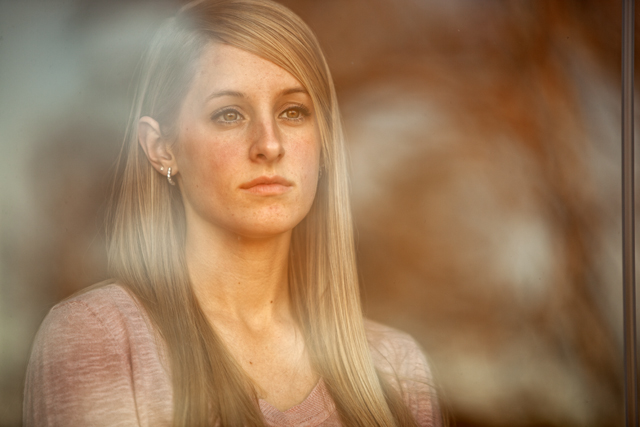Emily
The first time Emily forced herself to throw up, she locked herself in the bathroom and spent an hour sticking her hand down her throat trying to gag. She was fifteen years old.
For a while throwing up felt really good, in her words, she felt “golden” but she became increasingly tired and moody, retreating to her room, not talking with family or friends and trying to keep her new secret.
For the next seven months her life spiraled into a pattern of starvation, binging and purging, each time getting easier until it only took a few seconds.
A dancer her whole life, her illness began when she joined a new, more competitive dance company. “I felt like I wasn’t as good as the girls in the company and I wasn’t as thin, so that was a really hard thing for me to deal with,” she said. Her body began developing earlier than many of her friends which led to a sense of awkwardness and ultimately, low self-esteem.
 “During the day I wouldn’t eat anything, I would only drink a Diet Coke at lunch and then I would come home and be so hungry that I couldn’t help myself but to eat a whole bunch of food and felt so guilty that I would go upstairs and get rid of it,” Emily said, detailing the routine that defined her freshman year in high school.
“During the day I wouldn’t eat anything, I would only drink a Diet Coke at lunch and then I would come home and be so hungry that I couldn’t help myself but to eat a whole bunch of food and felt so guilty that I would go upstairs and get rid of it,” Emily said, detailing the routine that defined her freshman year in high school.
“I would binge and purge two or three times a day, which is extremely dangerous.” She became dehydrated and her body, which wasn’t getting the nutrients it needed for the strenuous demands of dance class, left her exhausted. It created “a deep hole in me, I just didn’t like myself. I was in a really tough place, just really unhappy and sad that I didn’t look the way I wanted. It was all about outward appearances for me.”
Finally she broke down. Returning from a grueling dance class she cried her eyes out, reaching the bottom and then reaching out to her family. From that moment her recovery began.
Her parent’s reaction was supportive. They then told her brothers and the family worked as a team to help her. She began therapy and credits her therapist with allowing her to slowly withdraw from her eating disorder.
She describes her ordeal as a battle between her better instincts and what she called “a nasty voice” inside her. In the parlance of her therapist, she called the nasty voice “ED,” an acronym for the disease, and she learned to distinguish when “ED” was guiding her. But giving up that voice was difficult. “There’s this little voice inside of you telling you that anybody who tries to help you is just trying to hurt you because you’re so focused on losing that weight” It was a debate she said that she was having with herself.
 “I started making goals to only purge once a day, only purge once a week, only purge once a month and then cut it out completely. I was able to come out of it very strong,” Emily said, crediting her family for confronting the issue. “I could talk about these things, that’s a really important thing because with such a tough issue a lot of families just don’t talk about it, just don’t bring it up.”
“I started making goals to only purge once a day, only purge once a week, only purge once a month and then cut it out completely. I was able to come out of it very strong,” Emily said, crediting her family for confronting the issue. “I could talk about these things, that’s a really important thing because with such a tough issue a lot of families just don’t talk about it, just don’t bring it up.”
Young girls are bombarded with societal expectations of beauty through television, magazines and the internet and Emily admits that was a driving force in her own self image but she discovered a different meaning of beauty through the journey she has traveled: “You need to realize how beautiful you really are. No matter what your size is, no matter what your hair color is, being you is the most true form of beauty. I think any girl going through those issues needs to rise above and own who you are, be who you are and that’s going to set you apart from all the other girls who are feeling they need to change themselves to fit into society.”
Emily is now twenty and enrolled in college studying to be a psychotherapist. “I realize now that your weight—your body image—doesn’t determine who you are as a person,” she said, adding that her life goal is to work with girls recovering from eating disorders and creating that change in other people’s lives.

Beautiful Billy Bob…the piece and you.
“Being you is the most true form of beauty”. Wise words from a courageous young woman. Emily, you will undoubtedly make a big difference for many other young women. Thanks for telling your story. Best wishes!
Great piece on an uneasy subject matter. Kudos to both of you. Virginie
I too suffer from this very ugly and strong disorder. Reading your story has given me hope and help that I can come out of this